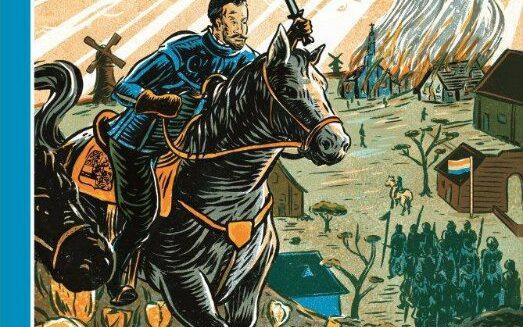This was a very good year for books. I’ve made several Top Ten lists, and some years I can’t think of ten really strong books to include. This year, however, I had a hard time figuring out which books to bump off.
It should go without saying that this list is not meant to assess the whole gamut of Christian publishing, let alone every interesting book published in 2012. I read a lot of books, but there are plenty of worthy titles that I never touch (and never heard of). This is simply a list of the books (Christian and non-Christian, but all non-fiction) that I thought were the best ones published in the past year.
When I say “best” I have several questions in mind:
• Was this book well written and enjoyable to read?
• Did I find it personally challenging, illuminating, edifying, or entertaining?
• Is it a book I am likely to reread or consult often?
• Do I see myself frequently recommending this book to others?
The books that score well in all categories are “best” and make their way on Top Ten lists.
10 (tie). Paul David Tripp, Dangerous Calling: Confronting the Unique Challenges of Pastoral Ministry (Crossway).
10 (tie). Zack Eswine, Sensing Jesus: Life and Ministry as a Human Being (Crossway)
Both books are convicting, challenging, and freeing. Both are very personal too. Tripp’s book is full of cautionary tales and arresting illustrations. I can’t imagine a pastor not being helped by this volume (though, my one quibble is that I think Tripp is too hard on seminaries). I also agree with Tony Reinke that the design and physical feel of this book are terrific.
I got Eswine’s very recently so I wasn’t able to finish it. But I love what I’ve read, and the endorsements are unusually laudatory. Of the two, Tripp’s is more hortatory and Eswine’s more contemplative. A lot of wisdom, experience, and honesty in both volumes.
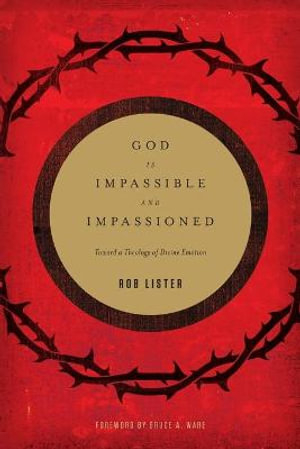
9. Rob Lister, God is Impassible and Impassioned: Toward a Theology of Divine Emotion (Crossway). Ah yes, the book I always thought I might write, but am glad someone else did first. No doubt, Lister’s scholarship is better than mine would have been. We really are in his debt for doing the heavy lifting through the Church Fathers, the Reformers, Moltmann, and the relevant academic literature on the massively important question “Does God suffer?” Lister says no: God is impassible, but that does not mean he is passionless. I hope Lister will consider a popular level volume on the same topic so that more of the church can benefit from his research and reasoning.
8. Charles Murray, Coming Apart: The State of White America, 1960-2010 (Crown Forum). A much talked about book that will continued to be referenced in the broader culture, especially among conservatives. This book “is about an evolution in American society that has taken place since November 21, 1963, leading to the formation of classes that are different in kind and in their degree of separation from anything that the nation has ever known. I will argue that the divergence into these separate classes, if it continues, will end what has made America America” (11). Whether you agree every jot of his analysis and every tittle of his prescription, you will be challenged to think more deeply about virtue, vice, segregation, culture, the elite, the working class, happiness, and the uniqueness of the American project.
7. Jay Nordlinger, Peace, They Say: A History of the Nobel Peace Prize, the Most Famous and Controversial Prize in the World (Encounter). This book reads like a survey of 20th century history and a series of mini-biographies. Nordlinger writes with a good pace and a light touch. He has a good sense for keeping things interesting and a keen eye for the inspiring and the ironic. He had my attention after his opening chapters on Alfred Nobel and “Norway the Peaceful.”
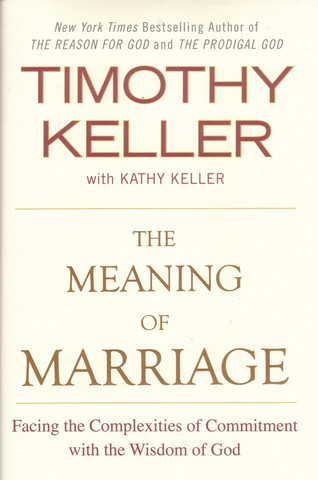
6. Timothy Keller (with Kathy Keller), The Meaning of Marriage: Facing the Complexities of Commitment with the Wisdom of God (Dutton). This is Keller being Keller (both of them!). Their writing is culturally informed, sensitive to skeptics, and full of biblical wisdom. We’ve been reading this book in our small group for the several months. The conversation has been great and everyone has loved the book. There’s a lot in this book for singles too. With a plethora of sound marriage books to choose from, I’m sure I will be recommending this one often.
5. Alistair Chapman, Godly Ambition: John Stott and the Evangelical Movement (Oxford University Press). Although the book, being a handsome OUP print, is a bit pricey, it’s worth your investment. If only all dissertations-turned-into-books were as fascinating as this one. Chapman understands Stott both as a seminal figure in the growth of global evangelicalism and as a man born into privilege in a certain kind of Britain that no longer exists. Of particular importance is the insight Chapman gives into Stott’s shift on social issues.
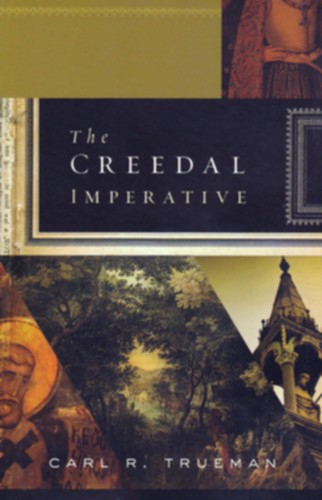
4. Carl Trueman, Creedal Imperative (Crossway). Not long ago one of my friends asked what’s one book I wish everyone in my church would read. Many suggestions came to mind. In the future, this will be one of them. With this book, confessional churches will better understand what they are and why they exist. Non-confessional churches may developing a hankering for catechisms and confessions. Trueman argues cogently and persuasively for the importance of doctrine, definition, and delineation in the life of the church.
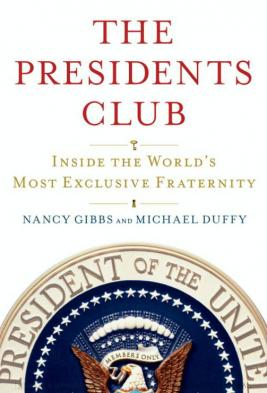
3. Nancy Gibbs and Michael Duffy, The President’s Club: Inside the World’s Most Exclusive Fraternity (Simon and Schuster). Having read their book on Billy Graham and the presidents, I was eager to read another Gibbs/Duffy book on the highest office in the land. They avoid covering the same ground as many other presidential books by looking at the post-WWII presidents as they have related to each other. This unique angle makes for unique history. You’ll find out who was better than you thought (Hoover), which president went rogue (Carter), and which two are surprisingly good friends (Bush 41 and Clinton). This is popular history at its best—accessible, interesting, and with a knack for the untold story.
2. D.A. Carson, The Intolerance of Tolerance (Eerdmans). I’m surprised I haven’t heard more people in my circles talking about this book. They should be. Carson tackles the subject of tolerance with his usual verve, careful analysis, theological probing, and well-timed expressions of exasperation. Our staff is just finishing a semester together in this volume. Christian leaders and teachers need to read this book.
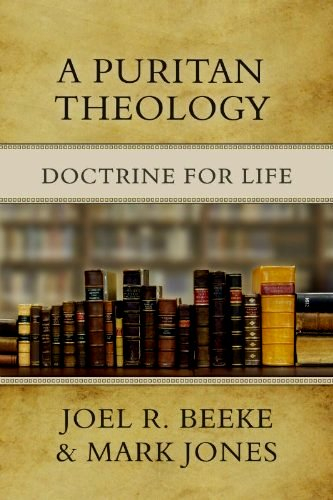
1. Joel R. Beeke and Mark Jones, A Puritan Theology: Doctrine for Life (Reformation Heritage Books). This is a remarkable achievement: a systematic theology which synthesizes the best of Puritan thought. Here you’ll find the best of head and heart, of praise and praxis, of careful thinking toward the goal of a godly life. Beeke and Jones are to be commended for a groundbreaking volume that will benefit the church for generations. I know I will mine its riches often. A truly great book in a year of great books.
Honorable Mentions
Steve DeWitt, Eyes Wide Open: Enjoying God in Everything (Credo House)
Albert Mohler, The Conviction to Lead: 25 Principles for Leadership that Matters (Bethany House)
Michael J. McClymond and Gerald M. McDermott, The Theology of Jonathan Edwards (Oxford University Press)
George Whitefield (Lee Gatiss, editor), The Sermons of George Whitefield (Crossway)
Greek-English New Testament: Nestle-Aland 28th Edition and English Standard Version (Crossway)



